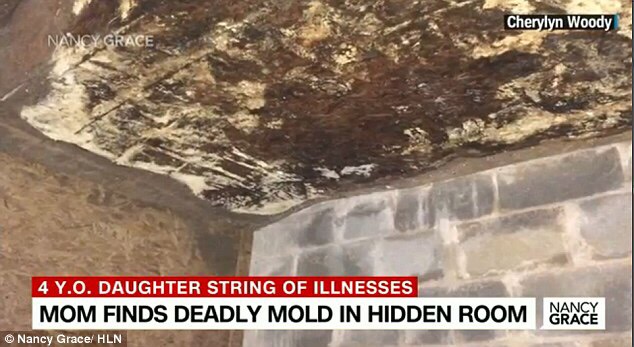In South Florida, it is common that homes will, at one point or another, suffer water damage which frequently originates from roof leaks, pipe leaks, air conditioning leaks, and cracked exterior stucco and foundations. Those leaks, combined with our humid weather makes for the perfect environment for mold to grow and spread.
When buying or selling a home, the real estate contract typically allows the buyer the opportunity to inspect the home during a period of time called the “Inspection Period” or “Due Diligence Period”. During this time, the Buyer has the right to conduct inspections using licensed home inspectors and/or mold inspectors to ensure that the buyer is satisfied with the home.
Must Sellers Disclose All Known Mold Issues to the Buyer?
Many sellers believe that because of the buyer inspection rights, that the seller does not need to disclose known defects in the home. However, this is untrue. Sellers are required to disclose everything that they know about the home that might be considered a defect in the home. If the seller has had a previous water leak or flood, they must disclose it to the buyer. If the seller has had a prior mold issue, it should be disclosed to the buyer. All too often, however, sellers instead decide that they will cover-up the existence of a mold problem instead of properly remediating it. This is because mold remediation is usually expensive to perform and sellers would have a financial incentive to cover up the mold with paint rather than properly remediate it. To make matters worse, sellers will sometimes attempt to hide the existence of a mold problem. Sellers may use cover-up paint (Kilz being one of the most used paint products) to hide the existence of the mold.
Can I File a Claim after the Closing on the Home?
Even buyers who hire home and mold inspectors may not always be able to discover hidden mold conditions in the property prior to the closing date. It is common for buyers to only discover the mold problem after spending some time living in the home when the buyers discover that the mold is starting to bleed through the cover-up paint job, or they begin to experience health symptoms from breathing in toxic mold spores. Some buyers believe that once they close on the property, it is too late to make a claim for non-disclosure of a known mold condition against the Seller. This, however, is untrue. If the seller knew of the condition and failed to disclose it to the buyer, the seller may be responsible for the cost of remediating the mold condition, even after the closing.
Insist on a Seller’s Disclosure Form
In most real estate transactions involving Florida licensed realtors, the realtors have access to a form called the “Seller’s Disclosure Form” (Property Disclosure Form). This is a fairly comprehensive form which asks the seller a series of questions about the history of damage and repairs to the home. Although this form is available to the realtors in every transaction, many real property closings occur without the seller have first been required to complete the form. If the seller completes the form and intentionally or unintentionally leaves out material and known prior defects to the home, the seller can be held responsible for such defects if they are discovered by the buyer later. Even though the Seller’s Information Form is a great tool for the buyer to insist on, simply because the seller doesn’t complete a form or uses an “as-is” contract, doesn’t alleviate the seller’s obligation to disclose all known defects to the buyer in the home.
Contact Us if you Believe you Bought a Home with Undisclosed Mold
Of course, with every situation, there may be exceptions and differing facts which require the analysis of a mold attorney. The Mold Lawyers at Militzok & Associates offer a FREE consultation to discuss the unique facts of your mold claim with our experienced attorneys. For more information, call us at (954) 241-2260, send an e-mail to info@themold.lawyer.
Militzok & Associates are toxic black mold attorneys who are proud to represent individuals and families throughout South Florida who are suffering injuries from mold exposure, musty smells and other types of indoor air quality issues. We represent clients in the following cities of Fort Lauderdale, Pompano Beach, Coral Springs, Davie, Plantation, Weston, Miramar, Sunrise, Coconut Creek, Dania Beach, Lauderhill, Margate, Parkland, Deerfield Beach, Oakland Park, Hallandale, Pembroke Park, Pembroke Pines, Hollywood, Cooper City, Tamarac, Wilton Manors, Lauderdale Lakes, North Lauderdale, Lighthouse Point, Southwest Ranches, Hillsboro Beach, West Park and Pembroke Park.
We also represent clients in Miami-Dade county in the following cities: Miami, Miami Beach, Hialeah, Homestead, Coral Gables, Doral, North Miami, Aventura, North Miami Beach, Aventura, North Miami Beach, South Miami, Miami Gardens, Key Biscayne, Sunny Isles Beach, Pinecrest, Miami Lakes, Opa Locka, Cutler Bay, Sweetwater, Palmetto Bay, Miami Springs, Miami Shores, Florida City, Surfside, Bay Harbor Islands, North Bay Village.
In Palm Beach County, we represent clients from South Bay, Golf, Manalapan, Briny Breezes, Greenacres, Magonia Park, Hypoluxo, Highland Beach, Lark Clarke Shores, Belle Glade, Pahokee, Glen Ridge, Tequesta, Atlantis, Loxahatchee Groves, Palm Beach Shores, Haverhill, Gulf Stream, South Palm Beach, Cloud Lake, Juno Beach, Palm Springs, North Palm Beach, Wellington, Lake Park, Lantana, Palm Beach Gardens, Jupiter, Riviera Beach, Boynton Beach, Jupiter Inlet, Ocean Ridge, Palm Beach, Royal Palm Beach, Boca Raton, West Palm Beach, Lake Worth, and Delray Beach.


Leave A Comment